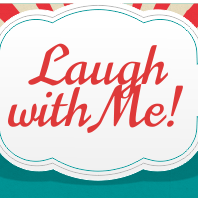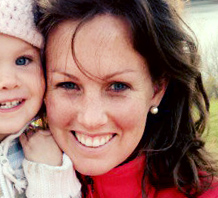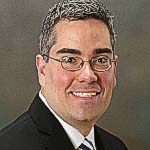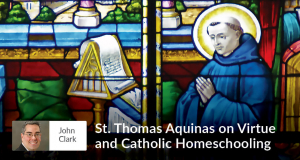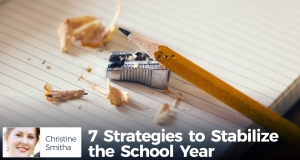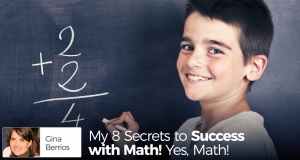Summary
Some subjects require more attention from parents, others are solid opportunities for students to learn how to study on their own. The question is how much?Work-text based subjects, including spelling, vocabulary, phonics, handwriting, and math, are ideal to introduce and accustom students to working on their own. Other subjects often require more parental involvement.
They might be referred to as the “content-rich” courses which include religion, reading, composition, and for high school students, history and science. These subjects frequently require a more sophisticated thought process, memorization, and using skills from other subjects.
My experience has shown me that teaching moms and dads need to provide more individual help in these content-rich subjects.
What does “content-rich” mean?
“Content-rich” is simply a label that I am putting on those subjects that require students to take in information about various topics, memorize some of it, figure out what the facts mean, and how they connect to previous knowledge the students have gained.
Then, as they go into middle school, and junior and senior high school, students are often asked to think about topics in these subjects, form ideas about them, organize their thoughts, and then write about these ideas, using rich vocabulary, as well as proper grammar.
Since each child has unique needs, parents should be aware of those subjects which require more one-on-one mom or dad time. Some assignments in the higher grade courses will be interdisciplinary.
What does “interdisciplinary” mean?
An interdisciplinary assignment requires students to use content and skills from more than one area of study. Composition assignments require forming ideas or putting together ideas about the assigned topic, which requires correct and precise grammar.
History and science require reading comprehension and thinking skills, which should be developed with practice in the junior high years and solidified in the high school years. Often reading assignments contain elements of history. Our children should be learning that just about every subject, even including music, art, and physical education, have some connection to our Catholic Faith.
My experience is that even the brightest students sometimes need to be “walked through” interdisciplinary assignments, at least at first. Our high school students should learn not to compartmentalize their studies, but to apply their knowledge across subject areas.
Reading
As a big portion of educational information is gained through reading, so reading is second only to religion in importance. In Pre-K, K, and 1st grade, reading is mostly phonics as the student learns to decode the sounds. Mom knows that often students in these grades require lots of one-on-one.
In 2nd and 3rd grades, children read simple stories with a controlled vocabulary as they gain fluency, and can often do this work on their own. Older students can help moms by listening to younger siblings.
By 4th grade most students can read a variety of chapter books on their own – and should! Recreational reading is an important key to educational development.
By 4th grade, many students are capable of reading the stories in their readers and workbooks by themselves, and completing assignments with little help from the teaching parent. Some of my children could. Nevertheless, it is a good idea to continue occasional oral reading to correct pronunciation and to check comprehension skills.
While I did not have much time to listen to each one of my children read aloud every day, my solution was to assign the short poetry selections from the Faith and Freedom readers to be read to the entire class of brothers and sisters. The children enjoyed their reading performance, and I was able to make sure that their pronunciation and comprehension was keeping up.
Starting in fourth grade, when my children began to read for book reports, I would often read the assigned book with them, if I felt it might be rough going. This is not cheating. The main purpose of the book reports is not to increase reading fluency; rather book reports are the earliest steps in literary analysis and writing skills.
Sometimes, I simply read the book on my own, but either way, the student and I could discuss the main ideas. I continued to read their literature assignments during high school years, as well. That’s how important I believe strong reading skills and literary analysis are to a student’s development.
Religion
Let me stress right up front that the primary way parents teach the Catholic Faith to their children is by word and example. Even before they start Pre-K work, your children should be accustomed to saying the most common prayers daily.
Before their fifth birthdays, they should know how to make the Sign of the Cross, and recite the Our Father, Hail Mary, Glory Be to the Father, Guardian Angel Prayer, and Grace before Meals. Many children find the Fatima Morning Offering a bit long, so I taught my pre-school children the offering I recited as a child:
Good morning, dear Jesus,
This day is for you.
I ask you to bless,
All I think, say and do.
When I made these prayers part of my family’s daily routine, I found that I never needed to formally teach them to my children. Many families say the Angelus at noon, the family Rosary in the evening, try to attend Holy Mass, and receive the sacrament of Penance once a month. All of these sacraments and devotions are the strong foundation of your children’s Catholic Faith on which the Seton religion curriculum is built.
The Religion for Young Catholics series is so easy to use. Simply have your children read the daily lessons, and answer the questions. As in history and science, allow them to check their own work with the answer keys, and then once a week, review the questions with them.
It is not a good idea to wait until the week before the exam to have the children memorize their questions and answers, but it can be tough to find the time for review. Take a page from the book of the teaching sisters of my childhood and try to find some time to drill the questions every day. It need not take much time, but even just a few minutes each day will have a big payoff at test time.
If, like me, you find you have too little time to drill during each school day, do not give up hope. This is an ideal activity in the evening after dinner. The youngest children can “show off” for Daddy. Your older children can drill younger ones.
Some of us families used to put extra copies of the Baltimore Catechism in the car. We were in the habit of reciting questions and answers on the way to various activities. We found that the car is a great place to review work in all subjects, especially if the children make study sheets.
History and Science
If your children are capable of reading the chapters in history and science by themselves, then by all means allow them to do so. If you are using the Seton worktexts, there is no reason they cannot check their answers to the chapter questions, using the answer keys, as well.
How, you may ask, can you make sure they are not “cheating” by not reading the material, but just copying the answers from the key into the textbook?
I solved that dilemma, and prepared my kids for their quarterly exams by reviewing the chapter questions with them every couple of days. This is pretty easy: just read the chapter questions aloud and ask the student to provide you with the answers.
The first time we went over them, I told them to study more diligently. A couple of days later, I might assign them to write the questions they had trouble answering in their notebooks so they made their own “study guide” for difficult questions. I would continue to review every chapter during our sessions, especially going over the missed questions.
All of this was not terribly time-consuming and really helped at test time.
Summary
- Try to hear your children read aloud as time permits.
- Reading some of your children’s assignments allows you to share ideas.
- As your children become fluent readers, it is perfectly fine to allow them to read lessons in reading, science, history, and religion on their own.
- Children can check the chapter questions themselves using the answer keys Seton provides.
- Put aside a bit of time every day to review work — during the school day, at night, in the car, or whenever you can find the time.

 Seton Magazine Catholic Homeschool Articles, Advice & Resources
Seton Magazine Catholic Homeschool Articles, Advice & Resources





